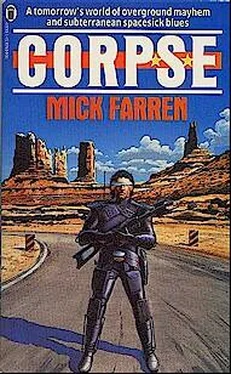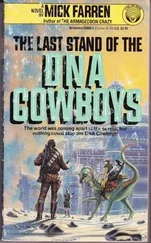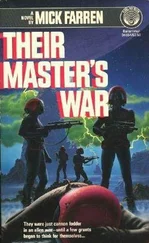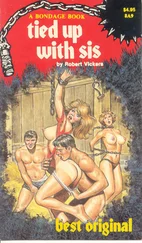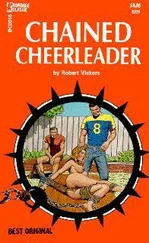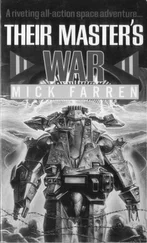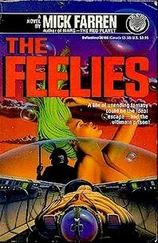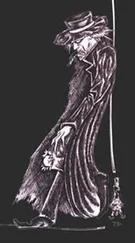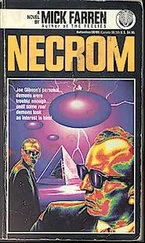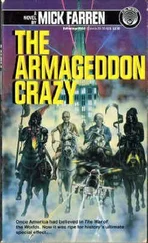Mick Farren
Vickers
(aka Corp.s.e.)
IT WAS ONE of the second generation of shuttles, the kind that were already being called "Roman candles" by the media. Two of them had roman candled inside of eighteen months. Vickers' pessimism did its best to convince him that he was riding on number three. He imagined that burning up in the atmosphere would be fast. A streak of fire when the heatshield ruptured and good-bye. Would you char-broil or would the smoke get you first?
Vickers remained doggedly in his cocoon like the kid who gets to the beach and won't take off his jacket. He'd removed neither the H-bar nor the straps. He glared out balefully at the banks of electronics. LEDs rippled and twitched back at him. The cabin was filled with pulse, whistle and ramble. Vickers also glared at the crew as they moved fluidly around, reaching with their slippered feet for the velcro anchor pads. He didn't want to hear that freefall was fun. Also, he had thrown up when the shuttle started to decelerate. The contents of his stomach were still spread around the cabin in a fine floating fog of tiny droplets that tended to cluster around the larger pieces of more solid material. Vickers saw it as a microcosm of the universe. The crew hated him. On the ride out, he had thrown up three times. That crew had hated him even more.
From the very first moment, Vickers had decided that freefall was one of the nastiest things he had ever encountered. He couldn't remember many things that remained so consistently unpleasant. It was like a continuous bad dream, one of the falling kind. It went against all the lessons his ancestors had learned while they were still furry and living in a tree. His instincts told him that the conclusion of freefall was splat! No amount of logic could dispel that yawning anxiety.
The crew tended to stay as far away from Vickers as was possible in the extremely confining cabin. It wasn't just the vomit. The community of those who ventured beyond the atmosphere was small and not much could be hidden. The crew undoubtedly knew why he'd been sent from earth and what he had done. To Vickers' knowledge, he was the first man to kill in space. It had to be worth a dubious something even if it was only a measure of privacy.
The target had been short and balding with a gut and a goatee. His name was Wilson Theodore Dewhurst, age 35, chemist. Vickers usually didn't ask why. The information was never volunteered although there was always rumor. Rumor had it that Dewhurst had developed some wild theory that the continuously recycled water on the big donuts contained contaminants that would have everyone who drank it down with liver cancer in five to seven years. A story like that can run through a donut crew with potentially disastrous results. Dewhurst had had to go.
As Dewhurst was a Contec employee and working on the Contec donut, it was therefore down to a Contec corpse to put him to sleep. Since Vickers was generally acknowledged as the best of the Contec corpses, it had fallen to him to do the deed.
There were four of the big donuts, each one owned and operated by one of the Big Four. The smaller corporations had to make do with drones and robots. The satellites of the Big Four contained men. They hung in their geosynchronous orbits some forty thousand klicks out with human creatures inside them going about their weird business. Originally the agency had wanted to call the donuts RWs-rotating wheels-but ABC News had called the first one a donut and the name had stuck.
All corporations constantly generated their own words and expressions. Some were euphemistic, others were just bizarre. The designation Corpse was an example of the sickness of corporate humor. CORPorate Security Exec. Corpse. Get it? A killer for the corporation. There was an ambiguous saying among corpses and those who dealt with them. "The best killers have already died." It probably started with the Japanese. Their lives are run by that kind of thing.
In theory, the hit had been a simple one. Vickers thought that it was a particularly stupid decision. Killing the sucker would only validate his theory. As usual, though, he bit down on his opinion and scrolled through the program. As the computer told it, the round trip on the shuttle was the dangerous part. All he had to do was to walk in and garrote Dewhurst in his sleep. It is, of course, a very foolish and dangerous act to fire a gun in a spacestation.
According to the data, Dewhurst slept alone. This wasn't true. At the time in question, Dewhurst had, in fact, been in bed with a physicist five years his junior, called George. From the way they were breathing, it sounded like they were both drunk. Vickers had raised a silent eyebrow. The computer had told him that Dewhurst was heterosexual and a non-drinker. Maybe the strain was getting to him.
Vickers had raised Dewhurst's head by the back of his hair. He had deftly flicked the length of thin stainless steel wire around his neck and jerked outwards on the black plastic handles. Dewhurst didn't know a thing. George was something of a problem. The request had called for a single termination. It had not called for a witness. Dewhurst and George were pressed together in a narrow bunk, buttoned in by a safety web. Dewhurst had spasmed briefly before he died. George grunted and moved his hand. He seemed to be attempting to caress Dewhurst's shoulder. Vickers had held his breath and readied the garrote. George sighed. He slumped and inhaled with a loud snore. In that instant he'd saved his life. Vickers slipped out of the cubical. George's certain hysteria when he woke with a hangover and a strangled lover could cause some useful confusion.
As always, the soulsickness began immediately after the deed. Disgust gnawed at him. Inner voices, thick with contempt, reproached and berated him. There was nothing he could do to fight it. The sickness followed a kill as surely as the tension preceded it and the brief flash of exultation accompanied it. He was unclean. He hated himself and the huge, devious, slithering mass of the corporation that owned him. The voices told him that it was a vicious dog world, corrupt with creeping life. He was the one that did their dirty work. Perhaps the Japanese were right. "The best killers have already died." When you're dead inside you don't feel the sickness. Vickers' only consolation was that the sickness would pass. The station execs who escorted him to the shuttle looked like they wanted to handle him with long tongs. It was as though they thought that he was leaving a trail of slime in their bright, white, sterile corridors. Okay suckers, you want to put your hands on your hearts and say that you don't have anything ugly or dangerous brewing in your labs? As they walked, it appeared they were permanently in the bottom of a concave dip. It was an illusion of the centrifugal force that passed as gravity on the donuts.
He caught one of the station execs looking at him out of the corner of his eye. It was a look that he'd seen a hundred times after a kill. They all wanted to know how it felt. How did it feel to kill another of your species? They were fascinated by the idea of being able to inflict death. Vickers could remember one time when he himself had looked with that look. He had been about thirteen. The checkout clerk in the corner store had been shot dead in a robbery. He had been standing on the sidewalk watching when the killer was brought out in handcuffs. The young Vickers had wondered how it felt.
The trouble with squares was that they equated death with sex. These fools were looking at him like small boys in the schoolyard who know that one of their number has gone all the way with a girl.
As Vickers crawled from the umbilical and into the cabin of the shuttle, the execs' contempt was echoed in the faces of the crew. At that point Vickers had resolved to remain buttoned up in his bunk until the wheels touched. He wanted out of this little world in space. It was too clean and too innocent.
Читать дальше
